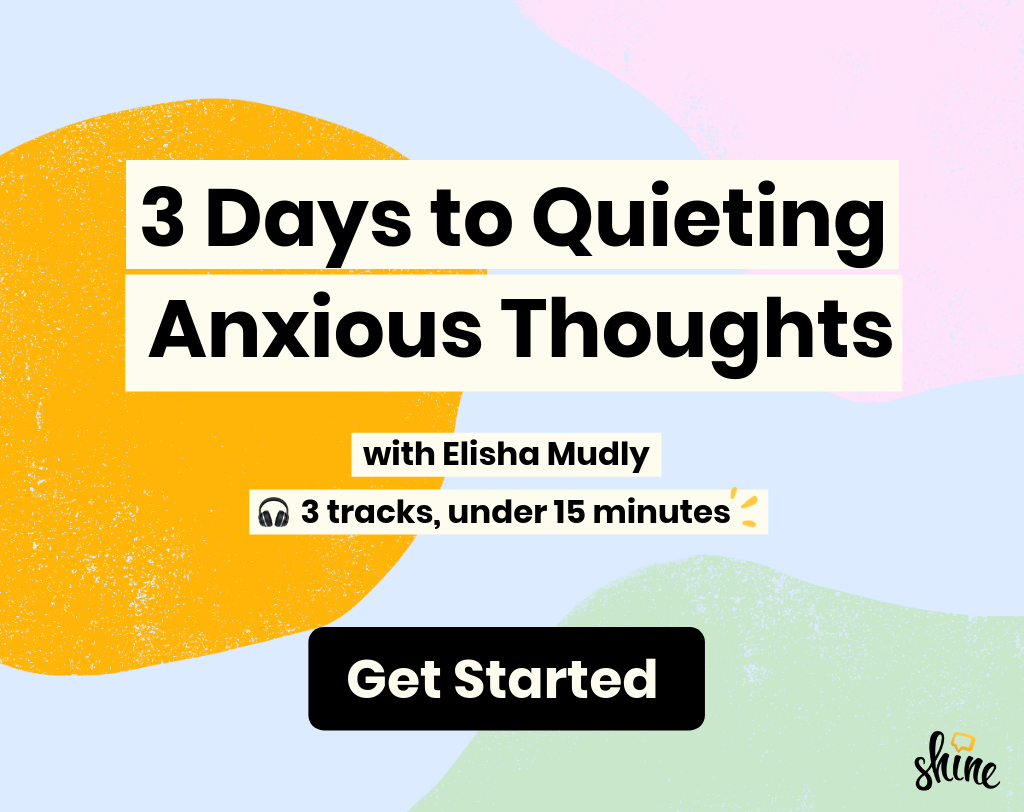The Marie Kondo Method For Tidying Up Your Mental Clutter
I’m about to miss my deadline.
The reason? I started watching Tidying Up with Marie Kondo on Netflix—and became so inspired I started cleaning my apartment, sorting through books and cabinets I hadn’t touched in years, and entirely lost track of time.
In case you’re not a full-fledged fan of the Japanese organizing consultant's KonMari method, here’s the gist: Her hypothesis for tidying up is that you should round up similar items in your home (ex. books, clothes, shoes) and go through them one at a time, asking “Does this spark joy?” If the answer is yes, congratulations, you can keep it! If the answer’s no, then on to the donation pile it goes.
While this method is genius for clearing out closet space or bookshelves, it also works for tidying up mental clutter as well. You know the kind of clutter I’m talking about: nagging thoughts you haven’t been able to shake for weeks (“Can I afford that vacation?”), the ones running on loops (“Is my friend mad at me?”), the seemingly unanswerable questions (“Can I become a person who loves to cook?”).
Your brain only has so much space.
Do yourself a favor and tidy up—clearing the cobwebs can give you the room and motivation to fill it with whatever thoughts you’d like, from picking which Oscar movie you’re going to see next in theaters or planning how to snag that promotion.
Do yourself a favor and tidy up your mental clutter—clearing the cobwebs can give you the room and motivation to fill it with whatever thoughts you’d like.
Here’s how to KonMari your mind:
Ask yourself: “Does this spark joy?”
What does “spark joy” mean exactly? Well, let’s hear it from the decluttering guru herself. “It feels like a rising,” Kondo says in the first utterly charming episode of her series in which she helps a couple with two young children clean up their home.
You are not your anxiety—but you're not alone in feeling it. Push through worry spirals with the 3 Days to Quieting Anxious Thoughts challenge, now available in the Shine app. Here's a sneak peek before you get started:
The spark of joy is the feeling you get when you hold a puppy, she says. “It’s a warm and positive feeling.”
You can ask the “spark joy” question of certain things you find yourself saying over and over again. Maybe you’re gossiping about someone you know, or chastising yourself for being late or constantly thinking about money. Whatever it is—take a second to think about whether this thought brings you joy. Chances are, quite a few conversations you have every day (whether with friends, colleagues, or even yourself) don’t bring to mind that “holding a puppy” feeling.
Of course, this method can’t rid yourself of all your obligations—work’s still gotta get done—but it can help you pinpoint negative loops that you play in your mind.
Try jotting the answers down in a list. (It’s almost like you’re organizing your thoughts in neat little bins or containers—the same ones that Marie loves more than anything in the world.)
Now, while Kondo would encourage you to put all those negative thoughts in a giant pile and ship them off to the Salvation Army, there’s a second question to ask yourself when it comes to mental decluttering.
Ask yourself: “Does this spark action?”
It’s not a huge surprise that Kondo declutters her brain the same way she declutters her closet. She wrote exactly how in TIME magazine, and it starts by writing down every emotion she is feeling(similar to piling up every article of clothing you own on your bed!).
Then she writes down action items for each emotion. For example: If you’re feeling super exhausted, an action item might be “set a bedtime for tonight” or if you feel emotionally drained you could either call a friend or go for a long solo stroll.
The point is to find actionable ways to deal with your feelings. (One very KonMari tip is to write your emotions in one color of pen and your action items in a different color, so, as Kondo says, “I have a clear visual cue that I’m finding positive fixes to my problems.”)
The final step is scheduling the time and date for the action item—and writing it down in whatever calendar suits you.
KonMari-ing your mind not only results in less mental clutter, but it also creates actual change. Just as you’re no longer wasting time by rifling through a too-full closet of clothes you hate, decluttering your mind means you won’t have to cycle through your brain to get to the good stuff.
Decluttering your mind means you won’t have to cycle through your brain to get to the good stuff.

As Kondo says of her mental decluttering method, “I promise that once you do, you’ll have much more clarity and will be in a calmer place.” And as I look at my less-cluttered apartment, I can’t help but feel like she’s always right.
Read next: How to Declutter Your Mind With 'Mental Minimalism'
Today's recommended meditation:

Shine is supported by members like you. When you buy through links on our site, we may earn an affiliate commission. See our affiliate disclosure for more info.


